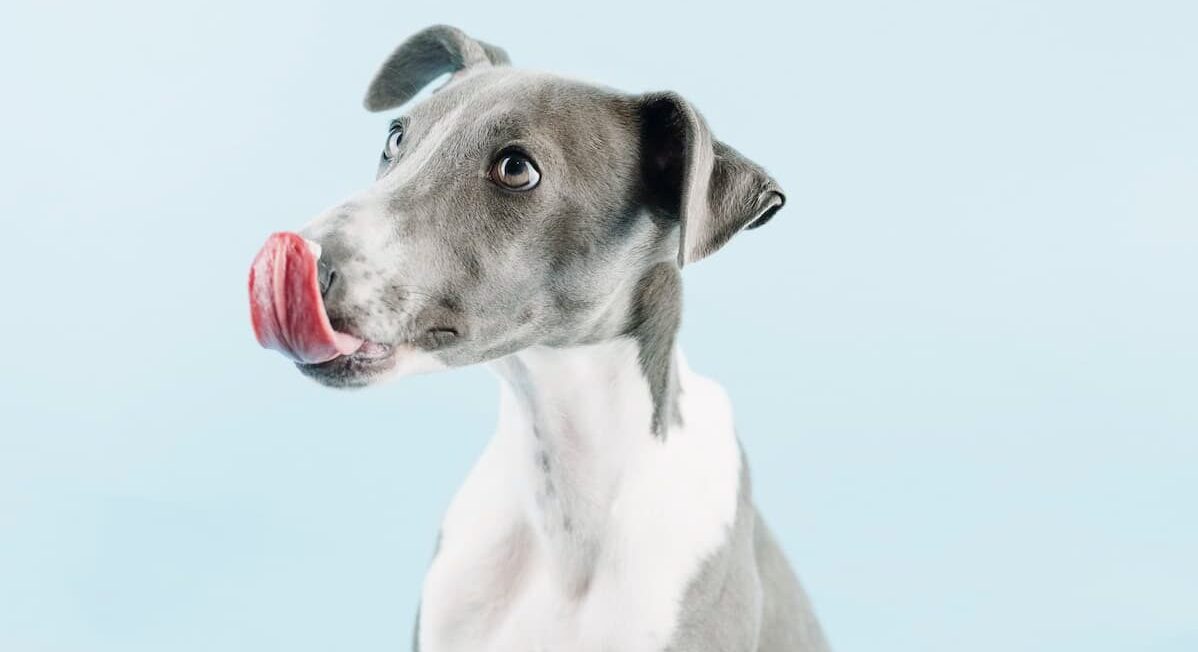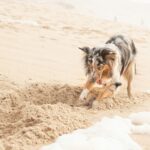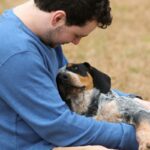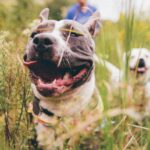Picture this: you’re lounging on the couch with your furry best friend, Fido, by your side.
Suddenly, you hear a peculiar sound that could rival even the most intense nail-biting scene from a suspense movie.
You glance at Fido, only to catch him in the act - his teeth mercilessly gnawing at his own nails!
In disbelief, you wonder, “Why on earth would Fido bite his nails and lick his paws?”
Read on to have your questions answered.
Why Dogs Bite Their Nails?
Dogs are known for their quirky behaviors, and one of the most perplexing ones is when they bite their nails and lick their paws.
It may seem harmless at first, but there could be underlying reasons behind this odd habit.
Allergies and Irritations
Just like humans, our canine pals can suffer from allergies too.
Dogs can be allergic to a variety of things such as environmental factors like pollen or dust mites, certain foods, or even substances they come into contact with, such as cleaning products.
These allergies can manifest in different ways, including causing itchiness and discomfort in their paws.
Anxiety and Stress
Dogs, just like humans, can experience anxiety and stress.
These feelings can stem from various factors like separation anxiety, changes in their environment, or fear-inducing situations.
Nail-biting and paw-licking can become coping mechanisms for dogs dealing with such emotions.
These behaviors release endorphins that act as natural stress relievers, helping them feel a temporary sense of calm.
However, it’s important to note that excessive nail-biting and paw-licking can worsen the anxiety and stress, leading to a vicious cycle.
Lack of Mental Stimulation
Dogs are intelligent creatures that require both physical and mental exercise to maintain a healthy and balanced lifestyle.
When they are deprived of these stimuli, they may resort to self-soothing activities such as nail-biting and paw licking.
Medical Conditions
Nail-biting and paw-licking can also be symptoms of various medical conditions that require attention.
For example, injuries such as broken or ingrown nails can cause dogs considerable discomfort, leading them to nibble or lick the affected area.
Likewise, fungal or bacterial infections, as well as parasites like fleas or ticks, can cause itchiness, leading to excessive grooming behaviors.
Additionally, underlying medical conditions such as arthritis or allergies can cause discomfort and prompt dogs to focus on their paws.
Practical Tips to Prevent Nail-Biting and Excessive Paw-Licking
If you’ve noticed your furry friend engaging in these habits, you might be wondering why it’s happening and how you can help them.
One of the main reasons why dogs bite their nails is due to anxiety or stress.
Just like humans, dogs can experience feelings of uneasiness or nervousness, which can lead to nail-biting as a way to cope.
It’s essential to observe your dog’s behavior and identify any potential triggers or stressful situations they may be facing.
Once you pinpoint the root cause, you can take steps to alleviate their anxiety and create a calmer environment for them.
If you suspect anxiety or stress may be the cause of your dog’s nail-biting and paw-licking, working with a professional trainer or behaviorist could also help identify and address the underlying triggers, ultimately improving your dog’s well-being.
Another reason why dogs may bite their nails is out of boredom or as a result of a habit formed over time.
Dogs need mental and physical stimulation to keep them entertained and prevent behavior issues.
If your dog is constantly bored, they may resort to nail-biting as a way to occupy themselves.
Providing plenty of exercise, playtime, and interactive toys can help divert their attention away from their nails and onto more fulfilling activities.
Similarly, excessive paw-licking can also be a sign of various underlying causes.
Dogs may lick their paws to soothe irritations or allergies, such as dry skin, fleas, or even food intolerances.
It’s important to regularly examine your dog’s paws for any signs of redness, swelling, or rashes.
If you notice any abnormalities, consulting with a veterinarian can help identify the underlying cause and develop a treatment plan.
Additionally, keeping your dog’s paws clean and dry can help prevent any irritations or infections.
In conclusion, understanding why dogs bite their nails and lick their paws is crucial in order to provide the necessary assistance and support to our furry friends.
By addressing the underlying causes, such as anxiety, boredom, or physical discomfort, we can take practical steps to prevent and alleviate these behaviors.
Remember, a happy and healthy dog is a pawfect companion!
FAQ
Q: Why do dogs bite their nails?
A: Just like humans, dogs bite their nails to keep them trimmed.
However, unlike us, dogs’ nails don’t need to be trimmed as frequently because they naturally wear them down through outdoor activities.
But sometimes, dogs may need a little help to keep their nails at an appropriate length.
Biting their nails is just one way they achieve this. It’s like their own little manicure!
Q: Are there any other reasons why dogs bite their nails?
A: Absolutely!
Biting nails can be a sign of anxiety or boredom in dogs.
Some dogs may resort to nail-biting when they feel stressed or nervous.
It might be similar to how some people bite their nails when they are anxious.
If you notice that your dog bites their nails excessively or starts doing it suddenly, it might be worth paying attention to their overall well-being and seeking advice from a veterinarian.
Q: Now, let’s dig into the paw-licking behavior.
Why do dogs lick their paws?
A: Dogs lick their paws for a variety of reasons, but one of the most common reasons is to clean them.
Often, dogs instinctively lick their paws after taking a walk or spending time outdoors to remove any dirt or debris they may have picked up.
Kind of like how we wash our hands after being outside!
It’s their way of keeping themselves clean and comfortable.
Q: Are there any other reasons why dogs lick their paws?
A: Indeed!
Sometimes, dogs lick their paws excessively due to allergies.
Just like humans, dogs can develop allergies to certain foods, environmental factors, or even pests like fleas.
This allergic reaction can lead to itchy and irritated paws, causing dogs to lick them excessively for relief.
If you notice redness, swelling, or if they obsessively lick their paws to the point of causing wounds, it’s crucial to consult with a vet to identify and treat any underlying allergies.
Q: Is paw-licking always a cause for concern?
A: Not necessarily.
Occasional paw-licking is completely normal, and most dogs indulge in it without any complications.
However, if you notice a sudden increase in paw-licking, constant licking, or if your dog starts avoiding activities they usually enjoy, it’s wise to consult a veterinarian to rule out any possible issues.
As for paw-licking caused by allergies, keeping your dog’s environment clean and free from potential allergens can help, but it’s crucial to consult a veterinarian to determine appropriate treatments.
To Sum It Up
From physiological issues like allergies and injuries, to behavioral causes such as boredom or anxiety, our fluffy friends have their own unique reasons for their grooming habits.
So, the next time you catch your pooch indulging in a vigorous nail-biting session or tirelessly licking their paws, don’t fret!
Take a moment to assess if there may be an underlying issue.
Perhaps it’s time for a visit to the vet to rule out any medical conditions, or maybe a little extra playtime and mental stimulation could do the trick.
Just like humans, our furry pals have their own quirks and peculiarities, but with a little understanding and patience, we can help ensure their overall health and happiness.
Remember, our loyal companions often communicate through their actions and behaviors, and it’s up to us to decipher their messages.
While nail-biting and paw-licking may seem like ordinary doggy habits, they could be red flags for deeper concerns.
So, keep a keen eye on your four-legged friend, shower them with love and care, and who knows, you may uncover more secrets to decode their fascinating lives.











